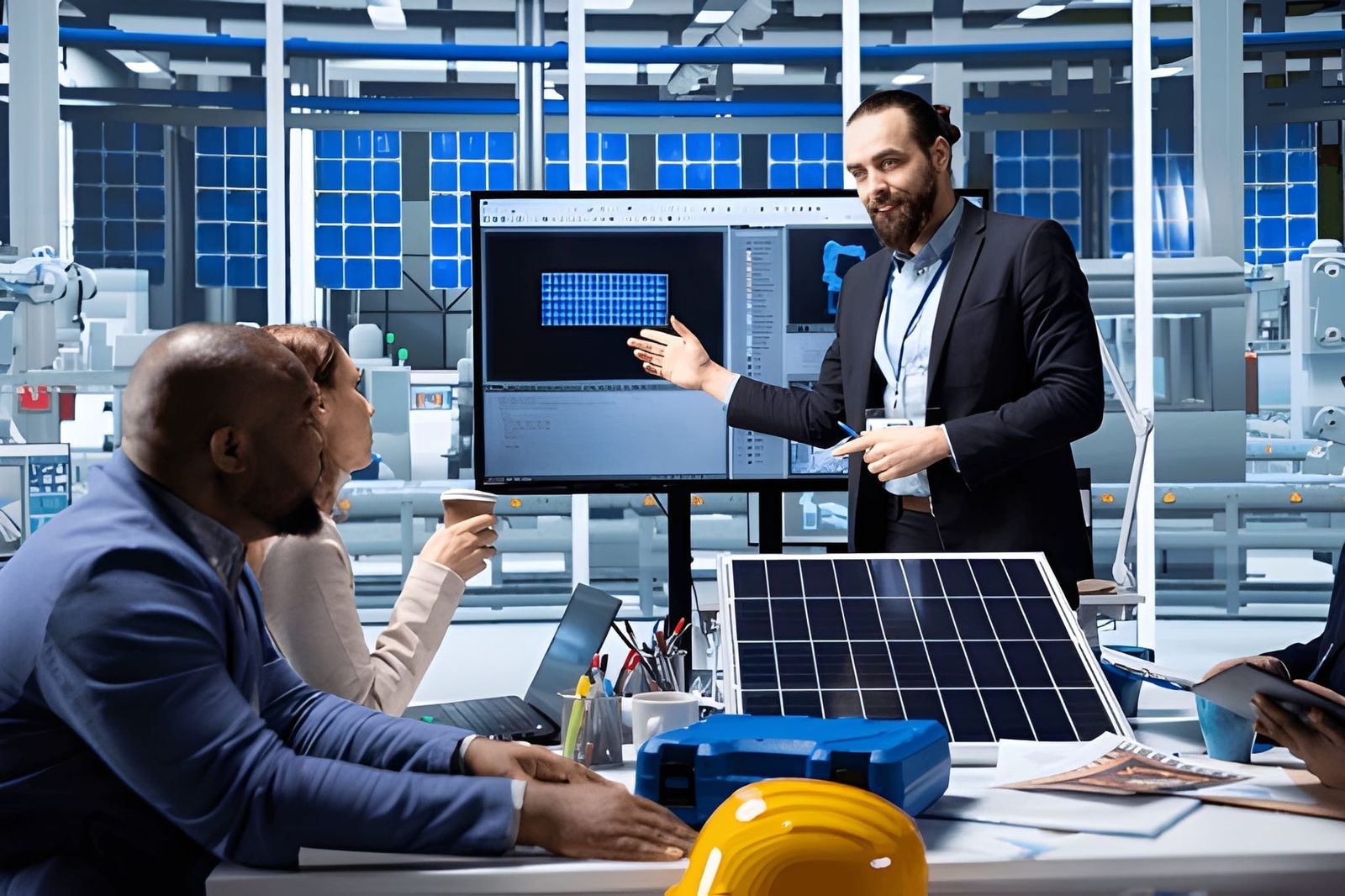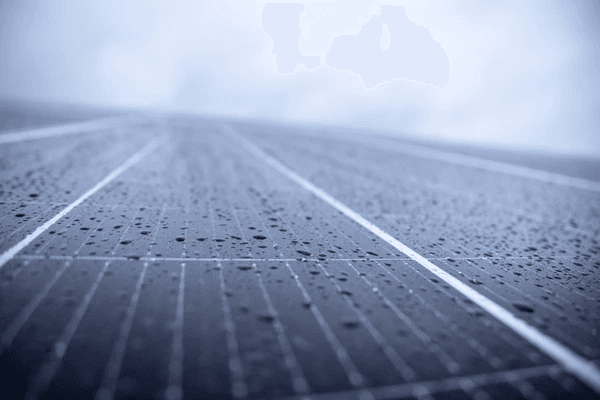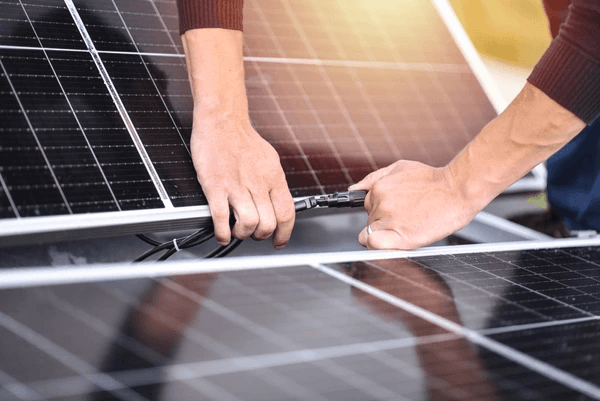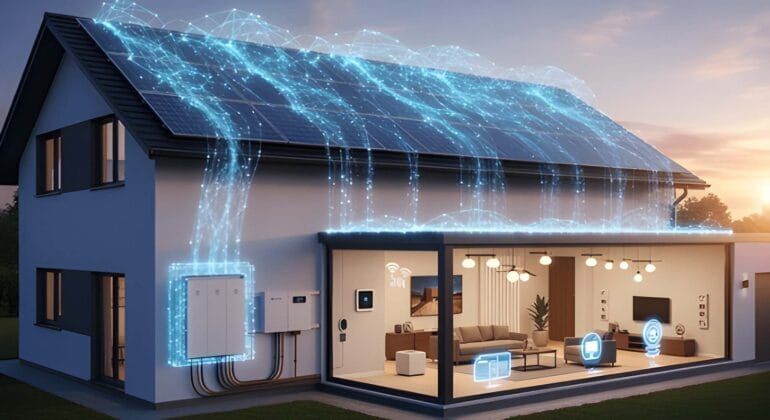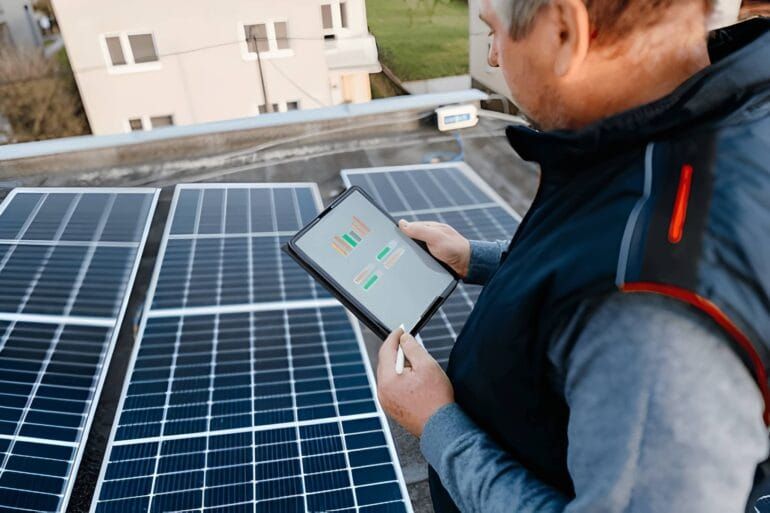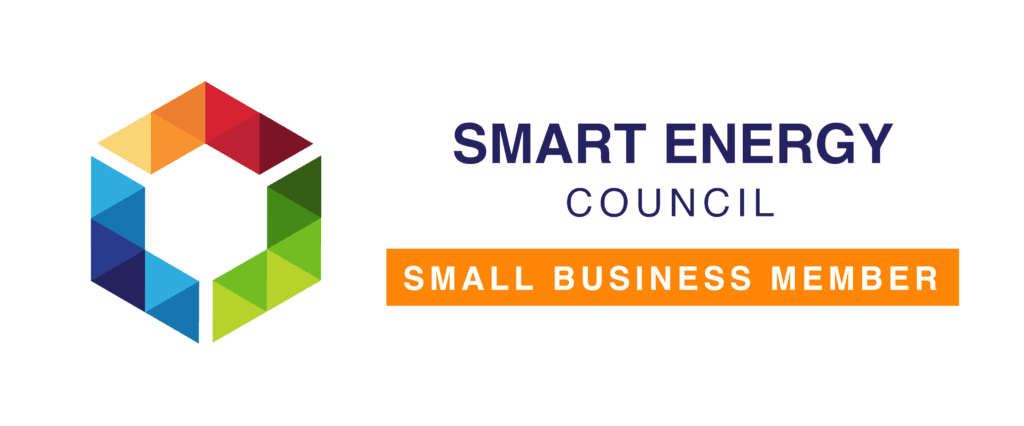Transitioning to solar power is one of the most rewarding investments a homeowner can make. It not only reduces your electricity bills but also contributes to a cleaner, greener future. However, before making the switch, it’s important to ask the right going solar questions and understand every aspect of your installation.
This guide takes you through the top 10 questions to ask prior to having solar panels installed, presenting you with an exhaustive pre-installation checklist. You might just be beginning your research or getting ready for installation day, but this article will assist you in making an educated, assured decision.
1. How Do Solar Panels Work?
First and foremost, you must learn the fundamentals of how solar panels make electricity. Knowing the process is among the initial checks before solar installation.
Solar panels or photovoltaic (PV) panels catch sunlight and use it to produce electrical energy. This is how the process is done:
- Solar PV cells catch sunlight and generate direct current (DC) electricity.
- An inverter turns this DC power into alternating current (AC) electricity that powers your home.
- Electricity runs through your electrical panel to power lights and appliances.
- Unused electricity can be sold back to the grid or saved in a battery for later use.
Understanding this easy flow makes you appreciate what you’re paying for — a renewable, self-sustaining power source that minimizes your use of the grid.
2. Is My House Suitable for Solar Panels?
Perhaps one of the most frequently asked homeowner solar panel FAQs is whether your individual home will be suitable for solar. The good news is that the majority of homes in Australia, particularly in sunnier areas such as Western Australia, are well-suited to solar installations.
There are, however, a few factors that decide how effective your system will be:
- Roof orientation and pitch: North-oriented roofs in Australia receive maximum sunlight, while east- or west-oriented roofs can still do well with slight reorientation.
- Roof space: The greater space, the bigger your solar array.
- Shading: Trees, high-rise buildings, or adjacent structures can cause shading and decrease panel performance.
- Roof condition: If your roof is due for repair or replacement in the near future, it’s better to get that out of the way first before having solar panels installed.
Prior to installation, your solar company (such as Easy Solar) will make a complete site visit to determine if your roof’s structure, orientation, and shading are compatible with long-term energy generation.
3. How Much Money Will I Save with Solar?
One of the most important things homeowners typically consider is cost savings. When individuals inquire about going solar questions, what they want to know first is the financial benefit.
Solar panels significantly reduce your electricity bills by allowing you to produce your own green power. How much you save will depend on:
- Your home’s energy usage.
- System size and efficiency.
- Your rates of electricity and feed-in tariff (FiT).
- If you have solar battery storage.
With a properly designed solar system, the majority of Western Australian homes can reduce a significant percentage of their power consumption, saving thousands of dollars during the life of the system. Further, many residents also discover that their system will be cost-justified in just a few short years — particularly when installed by trained professionals who have the system custom-fit to your consumption habits.
4. Do I Need to Add Solar Battery Storage?
When it comes to what to be aware of prior to going solar, knowing about solar batteries is key.
Solar batteries save surplus electricity generated throughout the day for use at night or when the grid is out. Adding a battery will raise your upfront cost, but also boost off-grid independence and offer backup power when you need it most.
A few of the most desired advantages of including a solar battery are:
- Energy self-sufficiency: Utilise your own power 24/7.
- Backup security: Maintain light and appliance operation during power blackouts.
- Savings maximised: Get the best value from your solar investment by using stored energy rather than purchasing from the grid.
Battery storage has also become a preferred option for WA homeowners. Easy Solar provides flexible battery solutions that can be installed at time of installation or added later as your requirements increase.
5. How Much Do Solar Panels Cost?
Of all questions to pose prior to installing solar panels, cost is usually the most urgent. There isn’t a uniform price tag to suit every house, though.
The cost of your solar system varies on:
- The size of the system (in kilowatts).
- panels’ type and brand and inverter’s brand and type.
- The type of roof, its tilt, and access.
- If you add a battery or monitoring system.
- Government incentives and rebates.
A consultation with a local expert like Easy Solar provides an accurate estimate based on your home’s roof design and energy usage. With financing options and Australian government rebates available, solar is more affordable than ever.
6. What Incentives and Rebates Are Available?
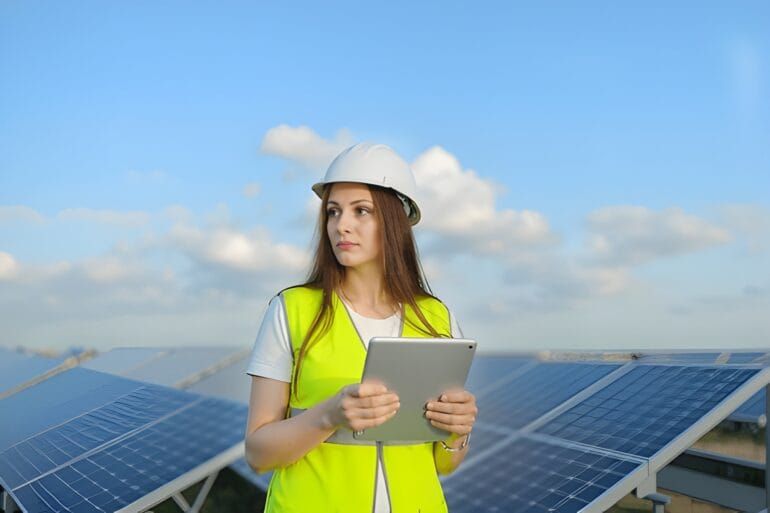
Another essential part of what to know before going solar is understanding available financial incentives. Australia offers several programs to make solar energy more accessible.
The Small-scale Renewable Energy Scheme (SRES) issues Small-scale Technology Certificates (STCs), which offset the initial cost of a system. Most energy retailers also pay feed-in tariffs for the excess electricity your system sends back to the grid.
Depending on where you live and with which retailer you have an account, there are even local government rebates and interest-free financing available. Easy Solar assists customers in making the most of all incentives, making sure you get the best return on investment.
7. Can I finance my solar panels?
Solar financing is amongst the most sensible options for residential homeowners interested in going solar yet paying everything out of pocket. This is a really typical entry on any homeowner solar panel FAQs list.
Financing enables you to pay for installation over time while enjoying the benefits of cheaper electricity bills upfront. Most solar companies in Western Australia — including Easy Solar provide flexible financing options from well-established Australian lenders.
When you opt for financing over leasing, you keep full ownership of your system. That means you remain eligible for government rebates, feed-in tariffs, and long-term financial savings.
8. What Type of Warranties do Solar Panels have?
Warranty conditions are usually neglected by homeowners when it comes to purchasing solar panels, but it is one of the most important checks prior to the installation of solar panels.
A trustworthy solar system should have:
- Performance warranty: Ensures a minimum power output (usually 80–85%) for 25 years.
- Product warranty: Protects against material or workmanship defects for 10–15 years.
- Workmanship warranty: Covers the quality of installation for up to 10 years.
A trustworthy installer like Easy Solar uses Tier-1 solar panels and premium inverters, all backed by long-term manufacturer warranties and local after-sales service. These guarantees provide peace of mind that your investment is well protected.
9. How Experienced Is the Solar Installation Company?
When comparing installers, always check their credentials and experience. Among the common homeowner concerns about solar, many revolve around choosing the right company.
Installing solar panels is not a DIY affair it involves professional design, electrical expertise, and Australian standards compliance. Before signing on the dotted line, ask questions like:
- How long has your company been operating?
- Are your installers Clean Energy Council (CEC) accredited?
- Do you subcontract or have in-house installers?
- What brands and components do you use?
Easy Solar, as an example, is a Perth-based, locally owned business with an excellent solar installation history throughout Western Australia. Their internal installation team maintains each project to the highest safety and efficiency levels — never resorting to third-party subcontractors.
10. Can You Provide Customer Reviews or Testimonials?
Reading what customers have to say ensures you can confirm a company’s reputation and service level. Testimonials speak to typical homeowner issues regarding solar like professionalism, communication, and long-term assistance.
Prior to contract signing, search for reviews on Google, social media, or the company website. Authentic reviews will usually mention how responsive the crew was, how smooth the installation process was, and how efficiently the system operates months or years down the road.
With hundreds of happy homeowners throughout Western Australia, Easy Solar’s glowing reviews attest to ongoing quality and outstanding post-installation service.
Bonus Section: Getting Ready for Solar Installation Day
With your questions about going solar answered, the next step is getting ready for the installation itself. Here’s a quick pre-installation checklist to get everything in order.
Check Your Roof and Electrical System
Your roof needs to be in good structural condition prior to installation of panels. If your roof is older, an inspection might be necessary to validate that it can support the weight of the system. Similarly, your electrical panel must be code compliant — your installer will assess this as part of your site visit.
Clear Access for the Installation Crew
Remove vehicles, tools, or garden furniture that might block access to your roof or electrical panels. Trimming trees and clearing overhanging branches will make the installation faster and safer.
Ensure Permits and Approvals Are Ready
Most professional installers, including Easy Solar, manage the necessary permits, grid-connection applications, and safety certifications. Still, it’s good practice to confirm that all approvals are in place before installation day.
Conclusion: Work with Easy Solar for a Stress-Free Solar Experience
Solar is a great, green investment but it works only if you begin with the proper knowledge. By learning these questions to ask before solar panel installation and breaking through the most prevalent homeowner concerns regarding solar, you’re already well ahead in energy independence.
From inspecting your roof to considering warranties and incentives, the right going solar questions ensure you make confident, informed choices.
That’s where Easy Solar comes in. As a locally owned Perth company, Easy Solar provides:
Residential and commercial solar systems engineered for Western Australian conditions.
- Tier-1 high-quality panels and top-shelf inverters for optimal efficiency.
- Solar battery storage solutions to achieve energy independence.
- Complete financing options to keep solar within reach.
- Professional in-house installation crews (no subcontractors).
- Regular maintenance and after-sales service to safeguard your investment.
Whether you’re new to solar or getting ready to have it installed, Easy Solar makes it easy from beginning to end so you can have dependable, clean, and affordable energy for years to come.
